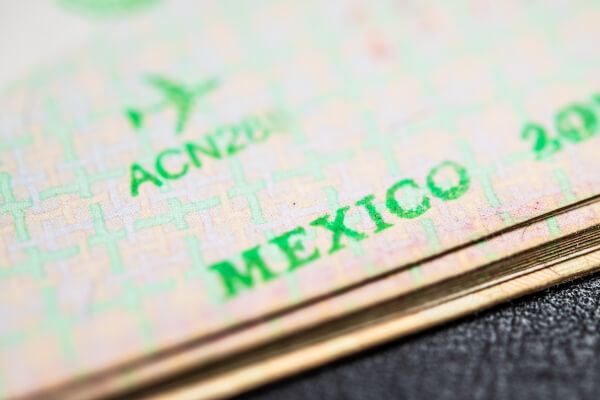How to Invest in Commercial Property With Confidence
Discover how to invest in commercial property with our comprehensive guide.

According to McKinsey, global payment revenues grew 11% in 2022, a double-digit rate for the second year in a row, highlighting the volume of international payments made electronically.1 If you’re ready to step up your international commerce, here's a list of the most common payment types.
From the most traditional methods to cutting-edge digital solutions, this list will give you an overview of the methods available for global transactions. Read on to discover which could best suit your international commerce needs.
Wise Business can help you save big time on international payments.
Wise is not a bank, but a Money Services Business (MSB) provider and a smart alternative to banks. The Wise Business account is designed with international business in mind, and makes it easy to send, hold, and manage business funds in currencies.
Signing up to Wise Business allows access to BatchTransfer which you can use to pay up to 1000 invoices in one go. This is perfect for small businesses that are managing a global team, saving a ton of time and hassle when making payments.
Some key features of Wise Business include:
Mid-market rate: Get the mid-market exchange rate with no hidden fees on international transfers
Global Account: Send money to countries and hold multiple currencies, all in one place. You can also get major currency account details for a one-off fee to receive overseas payments like a local
Access to BatchTransfer: Pay up to 1000 invoices in one click. Save time, money, and stress when you make 1000 payments in one click with BatchTransfer payments. Access to BatchTransfer is free with a Wise Business account
Auto-conversions: Don't like the current currency exchange rate? Set your desired rate, and Wise sends the transfer the moment the rate is met
Free invoicing tool: Generate and send professional invoices
No minimum balance requirements or monthly fees: US-based businesses can open an account for free. Learn more about fees here
Wise Business operates on a transparent, pay-as-you-go system where you’ll see exactly what you’re paying for each transfer. Getting local account details for multiple currencies costs a one-time fee of 31 USD, and sending and converting money depends on the currency but starts at 0.43% per transfer.2
One of the oldest and most historically reliable global payment systems is wire transfers. While they may sound relatively modern, they were established during the telegraph era in the mid-1800s. After many developments since then, wire transfers have become a tried-and-true method of transferring money electronically. How does it work? Using the SWIFT or Fedwire networks, money is moved from one financial institution to another.
Pros
Cons
Generally, domestic wire transfers are cheaper than international wire transfers. On average, incoming domestic and international transfers cost 15 USD each, outgoing domestic transfers cost 30 USD each, and outgoing international transfers cost 45 USD each.3
Looking for transparent prices on your international wire transfer?
Get a Wise Business account >>
ACH payments work similarly to wire transfers in that they transfer money between two financial institutions. However, ACH transfers are managed by the Automated Clearing House (ACH) network, which is only available in the US. As world payment systems have evolved, so has the ACH network. In response, Nacha (the company that runs ACH) has developed international ACH transactions.4
Pros
Cons
International ACH transfers typically cost less than $5.5
Looking for transparent prices on your International ACH transfer?
Get a Wise Business account >>
Direct debit and bank transfers are the most common payment methods of transferring money from one account to another. They’re a smart way of bypassing the complications and costs of other, more traditional payment options.
Direct debit involves the payer allowing the payee to collect payments from their account on specific dates, often used for recurring payments like subscriptions. Bank transfers, on the other hand, involve a direct transaction between two accounts, which may be limited for international transfers.
Pros
Cons
Direct debit and bank transfers usually come with fees of 1% - 3% of the total amount.6
Looking for transparent prices on your transfers?
Get a Wise Business account >>
Paper checks are one of the original ways of transferring money from one person to another. Checks can be delivered in the mail and serve as a contract to pay a specified amount from the sender’s bank account to the recipient. Despite being a slightly outdated method of payment in the digital world, paper checks have their own pros and cons as a global payment source.
Pros
Cons
For the sender, there are costs to purchase a checkbook and the envelope and stamp to send the check in. For the receiver, foreign check processing fees vary but are typically two to three-digit amounts. For example, BCU charges $20 per foreign check.7
The trusty credit card has been a mainstay as a cross-border payment type for decades. As many major credit cards are accepted globally, it removes the barriers that many other payment methods have.
Pros
Cons
Fees for credit card transactions depend on the card network you’re using, whether American Express, Visa, Mastercard, Discover, or something else. The average transaction costs for these top four networks are 1.29% to 3.3%.8 On top of this, there are also the payment processor fees to consider and potential card issuer fees.
Prepaid debit cards are a popular international payment method for businesses around the world. It lets people access their goods and services without the need for cash or even a bank account, making cross-border commerce a lot more accessible.
Pros
Cons
On average, prepaid debit cards charge monthly maintenance fees of around $10 and activation fees of around $5.9 As mentioned, there may also be extra fees to check your balance, get cash from an ATM, and so on.10
4 - Nacha - International ACH Transactions
5 - US Bank - Cross-border Payments Wire and International ACH
6 - Nerdwallet - Foreign ATM and Debit Card Transaction Fees
7 - BCU - Foreign Checking Processing
8 - CNBC - Best Prepaid Cards
9 - Consumer.gov - What You Should Know About Prepaid Cards
10 - Wise Trustpilot
*Please see terms of use and product availability for your region or visit Wise fees and pricing for the most up to date pricing and fee information.
This publication is provided for general information purposes and does not constitute legal, tax or other professional advice from Wise Payments Limited or its subsidiaries and its affiliates, and it is not intended as a substitute for obtaining advice from a financial advisor or any other professional.
We make no representations, warranties or guarantees, whether expressed or implied, that the content in the publication is accurate, complete or up to date.

Discover how to invest in commercial property with our comprehensive guide.

Learn how to hire independent contractors in Canada. Understand legal rules, tax responsibilities, and how to avoid misclassification with this guide.

Learn how to hire independent contractors in Brazil. Understand tax rules, compliance, contracts, and how to avoid misclassification risks.

Learn how to hire and pay independent contractors in Mexico. This article also includes an FAQ and best practices about working with contractors in Mexico.

Learn how to navigate the overseas worker recruitment. Discover legal requirements, sourcing strategies, visa compliance, and tips for international hiring.

Paying overseas vendors is common, but the hidden costs of B2B cross-border payments aren’t. Learn how to simplify international business payments today.